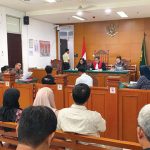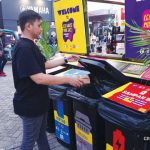Jakarta (Greeners) – In spite of presidential regulation issued in 2018 stipulated the acceleration of waste-to-energy plant development, budget allocation for the tipping fee of waste management in regional remains an issue. Hence, Ministry of Environment and Forestry or KLHK is preparing a ministerial regulation on tipping fee subsidy for regions developing the project.
Novrizal Tahar, director of waste management at the ministry, said that central government will subsidize the tipping fees for 12 regions stipulated by the 2018 Presidential Regulation to develop the Waste-To-Energy plants.
The subsidies will be recommended by Minister of Environment and Forestry to Minister of Finance.
“If the 12 regions need [subsidy] for the tipping fees, then the region heads must submit official proposal to the Ministry of Environment and Forestry, the recommendation [from the Ministry of Environment and Forestry] then being forwarded to Ministry of Finance,” said Tahar in Jakarta on Friday (08/03/2019). “The subsidy’s technicality had been discussed and discussed among other sectors. So, it’s probably not for long for the ministerial regulation [to be issued], hence, it will ensure the project to be immediately developed.”
READ ALSO: BPPT Develops Small Capacity Waste Fueled Power Plant to Reduce Its Volume
Furthermore, he said that the discussion on the tipping fee guidance is final, however, it still requires several reviews and consultation from Minister of Environment and Forestry.
The requirements for the subsidy are official letter from regional to the Ministry of Environment and Forestry, already obtained Project Based Learned, recommendation for the proposed tipping fee, and assignment of the tipping fee submission.
He said the ministry’s team will evaluate and monitor the subsidy every year. The evaluation will determine on the total subsidy granted to the regional administrations.
“The tipping fee subsidy will be distributed every year. We [the ministry] will evaluate and monitor, if the waste-to-energy plant in bad shape or low emission cuts, it will reduce the tipping fee for next year,” he said.
READ ALSO: KLHK: Law Stipulates Waste-To-Energy Installation
Currently, Surabaya city has finalized the installation of the Waste-To-Energy plant and operating. The plant potentially produces at least nine megawatt of electricity with the capacity of 1,000 tons of waste.
In addition, DKI Jakarta did its groundbreaking and Solo has run its gasification technology.
Previously, at the national working meeting attended by 11 ministries and coordinating ministry for maritime affairs, Minister of Environment and Forestry, Siti Nurbaya, announced that her office is closely monitoring regional administrations by issuing notes to regional administrations lacking with landfills. Minister Siti refers them as not good cities and underlines Waste-To-Energy plant to be the solution.
Reports by Dewi Purningsih



















































